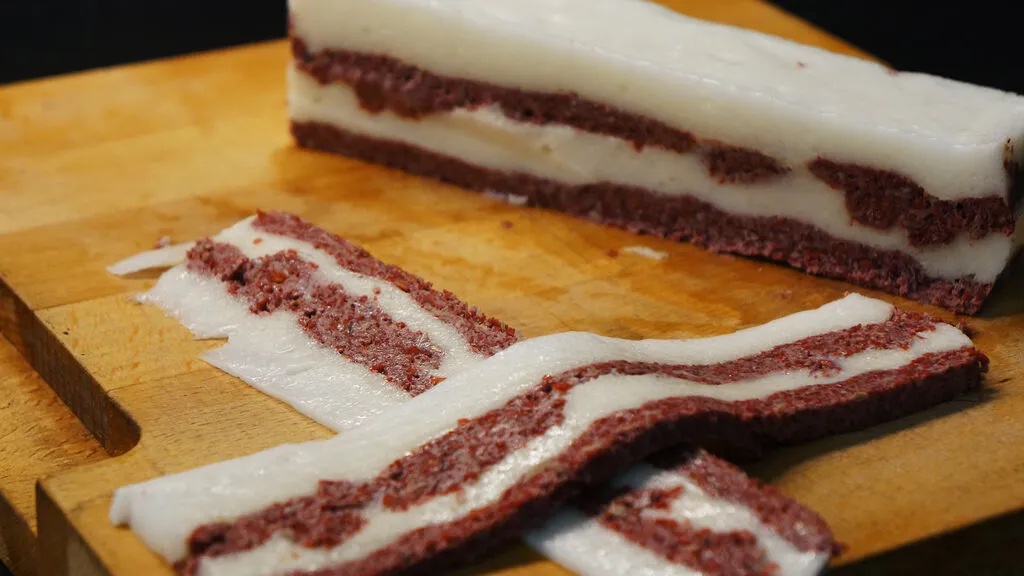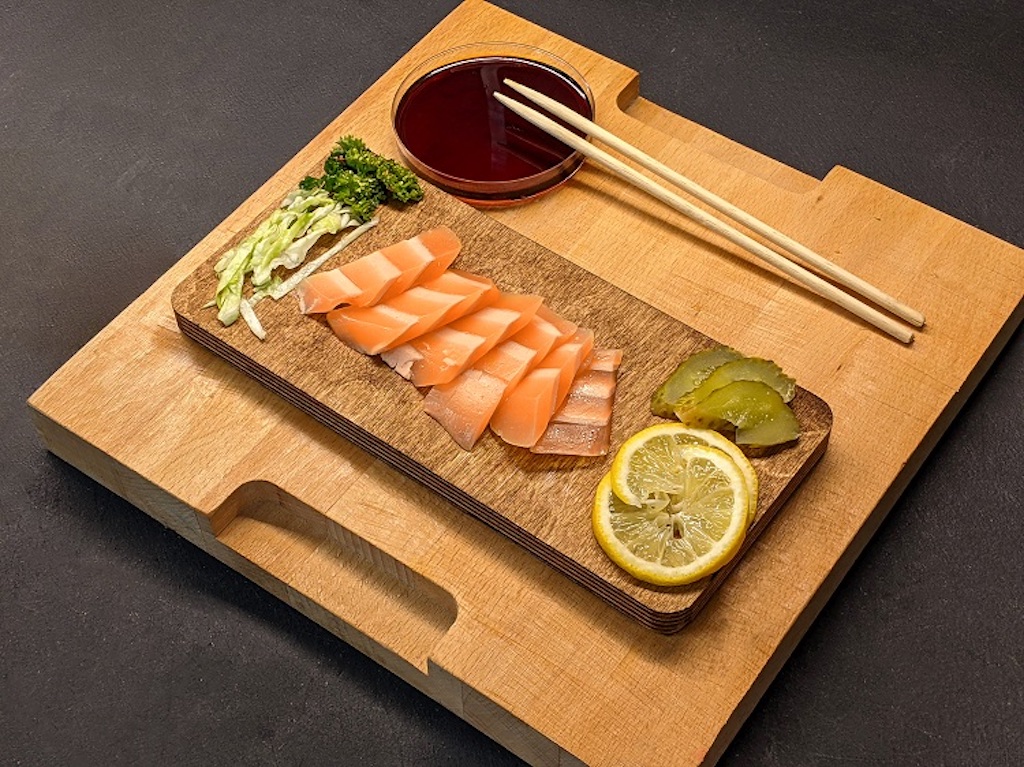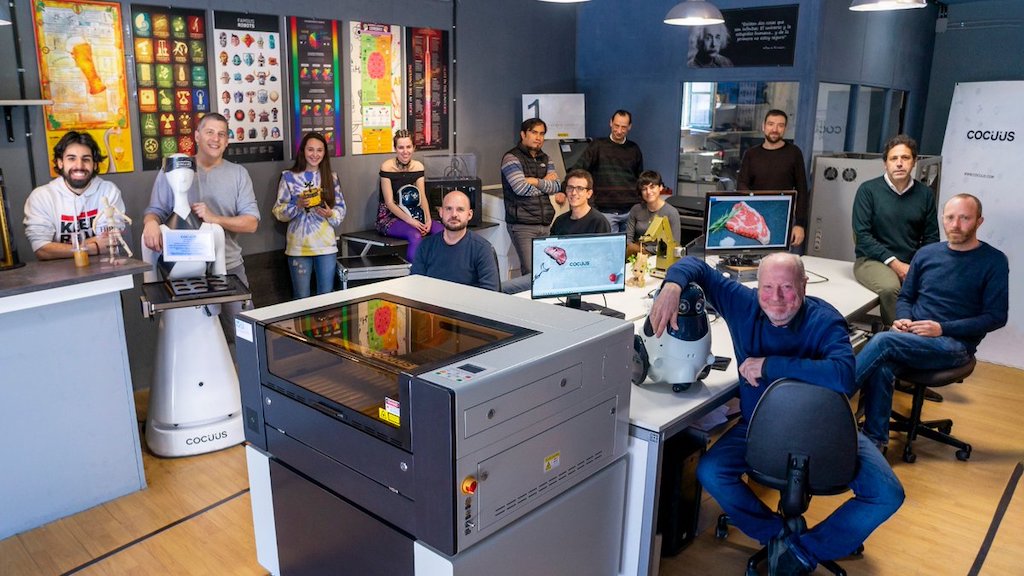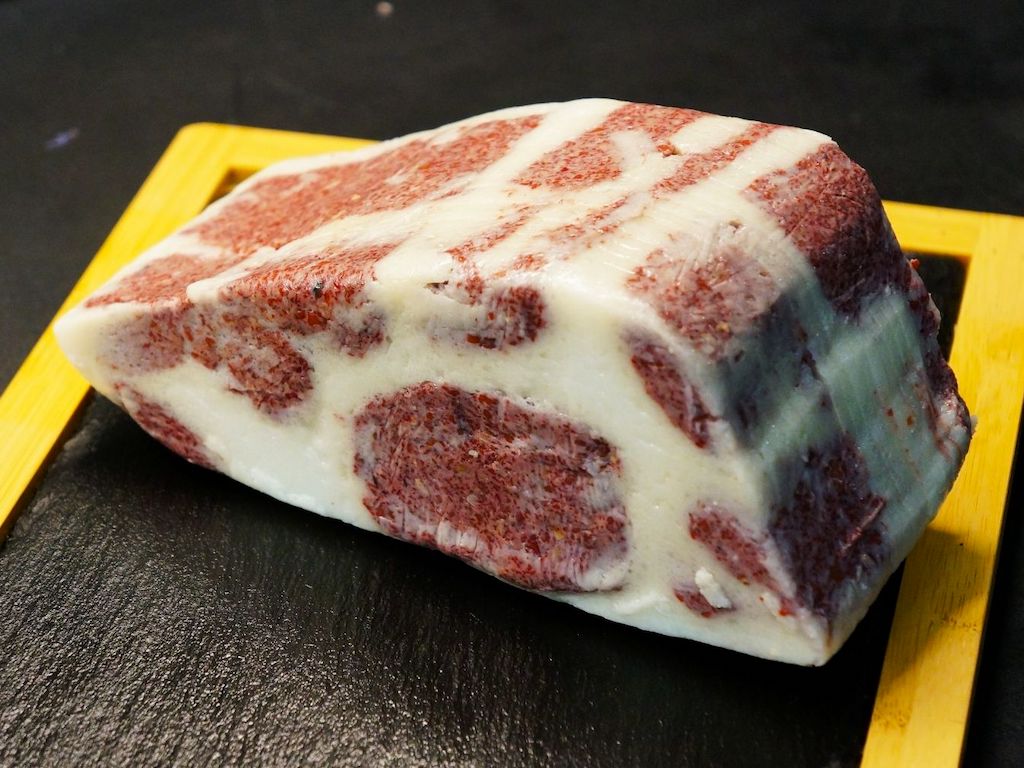3 Mins Read
Alternative proteins are gaining traction, but one startup believes it holds the key to help take the industry to the next level. Based in Spain, Cocuus has developed its own 3D printing technology to make realistic slabs of meat alternatives using either plant-based or cell-based ingredients. And they recently debuted 3D printed ribeye steak and salmon sashimi to prove it.
Cocuus started back in 2017, when Javier Zaratiegui, Daniel Rico and Paxti Larumbe came together to think about solutions to the broken food system. Right now, we’re facing an uphill battle of figuring out how to meet the nutrition needs of a planet of 10 billion people while also battling climate change.
“The resources to feed the entire population are limited,” said Zaratiegui, as quoted in FoodNavigator. “We cannot address this challenge with today’s solutions.”
From vegan burger patties to chicken strips, there are already a number of plant-based meat products on the market. These offer sustainable alternatives to animal proteins produced by carbon-intensive traditional livestock farming. But some consumers still cite taste and cost as reasons why they’re sticking to meat.

Cocuus’ 3D printing platform
That’s why Cocuus is developing 3D printing tech to help alternative protein makers create next-generation products that could lead to mass adoption.
The Navarre-based B2B startup’s platform allows startups to create analogues that resemble real slabs of meat. Calling it “Mimethica”, the technology analyses the structure of foods and is based on mathematical models to reconstruct them.
“Not only reconstruct them, but to do so in a scalable way,” Zaratiegui said.
In addition to 3D printing, the patented platform combines inkjet printing and other “disruptive disciplines” to make its hyper-realistic, cost-effective alternatives. And they’ve already managed to create their first prototypes: 3D printed ribeye and salmon.

Not only reconstruct them, but to do so in a scalable way.
Javier Zaratiegui, Co-Founder, Cocuus
Go-to-market plans for 2021
Currently, the startup’s main focus is refining its platform and running pilot tests before commercialising the tech later this year. At present, Cocuus is able to 3D print around 10 kilograms of its product per minute.
It plans to partner with alternative meat makers through selling and leasing its platform, as well as providing its expertise and R&D assistance. These companies won’t just include plant-based meat startups, but firms using cell-based technologies too.
According to Cocuus, they are already in the process of creating a prototype for its scaffolding technology to enable companies to 3D print cultivated meat and fish.
As reported by FoodNavigator, Cocuus is launching a funding round to fuel its growth plans. It aims to raise €2 million (US$2.4 million), which will go towards “marketing and sales, finish ongoing products, and to continue with R&D.”

3D printing tech on the rise
Though still a tiny sector, the 3D printing alternative protein space is picking up speed. Cocuus is joined by startups Revo Foods. Based in Vienna, Revo Foods has created 3D printed vegan salmon and other seafood products and will launch with partnering restaurants.
Other players include Barcelona’s Novameat, who has developed both vegan steak and cell-based meat using 3D printing tech. Meanwhile, Redefine Meat in Israel has debuted an “alt steak” that has been 3D printed using plant-based ingredients.
All images courtesy of Cocuus.




